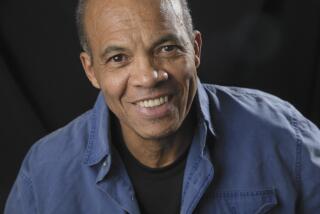‘Now the Drum of War’ by Robert Roper
The American Civil War became known as an “unwritten war” because so few attempted or succeeded in writing anything substantial about it at the time. Yet perhaps this view is only partly true.
Emily Dickinson’s most prolific outpouring of poems occurred during the Civil War. A closer look at those poems often reveals her oblique preoccupation with the war.
In “Now the Drum of War,” Robert Roper makes two points about the poetry Walt Whitman wrote during and about the Civil War: first, that it was far from his best work; and second, that it reveals neither as much as we should know about Whitman nor as much as Whitman believed we should know about the United States.
In this vivid and engaging biographical study, Roper focuses on Whitman’s early life and family as a path to understanding the poet’s intense years as a “Soldier’s Missionary,” a formal title, bestowed on him in 1863, that well describes his efforts as nurse (really a nurse’s aid) to thousands of wounded soldiers in military hospitals in Washington, D.C.
Whitman would listen to the wounded, or, more commonly, talk to them since they were often unable to speak themselves. At their request, he would bring sundries: shirts, suspenders and spiced cherries.
Roper argues that Whitman, from “his days as a novice journalist . . . had sought to merge with the teeming crowd, and he identified with all the human types thrown up by American democracy in its first generations. In the thousands of wounded and sick sol- diers, he found at last a crowd that he could examine, caress, love, and heal in his own good time.”
Battle held little or no interest for Whitman -- he never saw combat. The “beauty” and “vulnerability” of the broken soldiers represented the war in his imagination. The hospital supplanted the battlefield. The dignity with which the soldier bore his suffering exemplified a “masculine young manhood” threatened and in need of preservation.
Crushing world
At one point, Roper suggests that Whitman played a kind of unnerving foil to the Victorian primness of the army ward nurses -- sometimes stirring patients to a little inebriated, if not erotic, mischief. The bearded fatherly figure of Whitman, though only in his 40s, became, looking backward, a bit of a Falstaff or, forward, a Randall McMurphy to the young victims of war’s machinery.
Whitman’s ardent unionism was never in question, nor was his contempt of slavery. But Roper’s book reveals that Whitman’s politics of union did not occupy the forefront of his mind during the war.
He planned to write a little book about the hospitals, and his experiences with thousands of soldiers should have given him more than ample material.
The soldiers “were poems waiting to happen,” but Roper laments that when Whitman eventually did write about them, in “Drum-Taps” and “Specimen Days,” he revealed himself as someone who did not listen as well as he might have and reproduced the same story repeatedly.
Whitman has long been regarded as the best poet of the Civil War. “Drum-Taps” does not deserve the condemnation once heaped upon him by Henry James for exhibiting “a prosaic mind [that tries] to lift itself, by a prolonged muscular strain, into poetry,” but Whitman may not have been equal to the crushing world he witnessed in the hospitals.
Roper, though, reveals himself to be a diffident reader of Whitman’s war poems and almost completely unaware of the achievement of both Dickinson and, especially, Melville, whose “Battle Pieces” convey with steely language the dehumanizing machinery and moral ambiguities of the conflict.
The most interesting of Whitman’s writing from the war years occurs in his letters. Here, he reveals most intimately what the young soldiers meant to him. He fell in love often, and the letters Roper quotes at length offer a moving record of Whitman’s complex erotic relationships with several wounded young men. Roper gives us a superbly nuanced depiction, without an overbearing psychological -- or worse, psychopathological -- frame.
Brothers Whitman
“Now the Drum of War” is built around Whitman’s family, particularly two of his brothers, George and Jeff. George, a courageous and talented soldier, became a captain in the 51st regiment, fought at Fredericksburg, Va., was eventually captured and remained a prisoner until the war’s end. Jeff, who had little formal education, had natural talents in engineer- ing and rose to the top of his field.
Roper’s insight into the age differences between the siblings, as well as Whitman’s constant concern for George, Jeff and a third brother, Andrew (who died of a tubercular disease during the war), contributes to an understanding of what made the poet an able paternal figure to so many soldiers. But while we learn much about these relationships, Roper does not succeed in interweaving their lives into a particularly illuminating narrative.
Whitman’s relationship with his mother, Louisa, is more interestingly portrayed. Although she appeared to be entirely uncomprehending of “Leaves of Grass,” she did reveal a sharp critical insight as to the worth of different essays about her son that appeared in New York newspapers. And it was to her, it seems, that he wrote most earnestly and affectionately about family distress.
Whitman’s sense of spirituality, Roper argues convincingly, was tied to Emerson’s notion of a transcendental realm; from the world of natural facts, we could somehow progress toward spiritual facts. What kinds of spiritual facts did Whitman wrest from the carnage of the Civil War? Perhaps “When Lilacs Last in the Dooryard Bloom’d,” his elegy for Lincoln, is his great and mysterious answer.
Robert Faggen is the Barton Evans and H. Andrea Neves Professor of Literature at Claremont McKenna College.
More to Read
The biggest entertainment stories
Get our big stories about Hollywood, film, television, music, arts, culture and more right in your inbox as soon as they publish.
You may occasionally receive promotional content from the Los Angeles Times.










